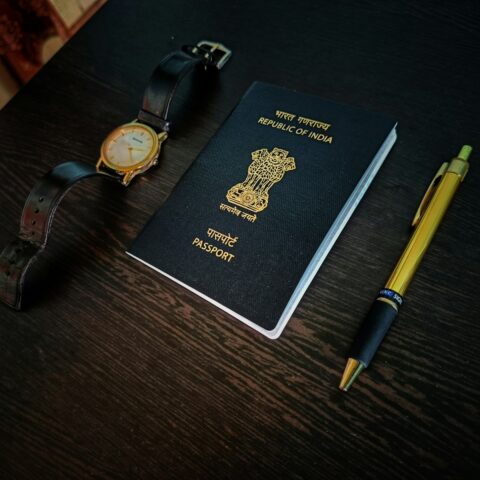Supreme Court Clarifies Limitation and Validity of Arbitration Clauses Post-Amendment

Introduction
In a significant ruling that reinforces the pro-arbitration stance of Indian courts, the Supreme Court in Offshore Infrastructures Ltd. v. Bharat Petroleum Corporation Ltd.[1] examined two crucial issues the validity of arbitration clauses rendered partially inoperative due to statutory amendments, and the computation of limitation for applications seeking appointment of arbitrators under Section 11(6) of the Arbitration and Conciliation Act, 1996. The judgment provides clarity on how courts must interpret arbitration clauses in light of the 2015 Amendment and affirms the continued applicability of the Supreme Court’s COVID-19 limitation extension orders to arbitration proceedings.
Table of Contents
Background of the Dispute
The dispute arose out of a contractual agreement between Offshore Infrastructures Limited (“the Appellant”) and Bharat Oman Refineries Limited, which was later merged with Bharat Petroleum Corporation Limited (“the Respondent”). The Respondent had invited tenders for the establishment of a new Modular Penex Unit and associated works at the Bina Refinery. Offshore Infrastructures Ltd. emerged as the successful bidder, and a letter of acceptance dated 31st December 2016 was issued in its favour. The project was to be completed within five months, i.e., by 30th May 2017.However, the work was not completed within the stipulated period and was eventually finished on 31st January 2018. The final bill (RA Bill No. 7) was submitted on 20th March 2018, followed by the issuance of a No Claim Certificate on 3rd October 2018. A completion certificate was granted on 5th February 2019, and the final bill was released on 26th March 2019. Thereafter, part payment was made on 11th June 2019, with the Respondent deducting 5% liquidated damages for the delay.
The Appellant later raised a consolidated claim for its outstanding dues on 26th April 2021 and, subsequently, on 14th June 2021, issued a notice to the Managing Director of the Respondent seeking appointment of an arbitrator under Clause 8.6 of the General Conditions of Contract (“GCC”). The clause provided that the Managing Director or his nominee would act as the sole arbitrator. Recognizing that such a provision was inconsistent with the post-2015 amendment to the Arbitration and Conciliation Act, 1996 (“the 1996 Act”), the Appellant requested the Respondent to suggest four independent names for appointment as sole arbitrator. However, the Respondent refused the request through a communication dated 2nd July 2021.Consequently, the Appellant filed an application under Section 11(6) of the 1996 Act before the Madhya Pradesh High Court seeking appointment of an independent arbitrator.
High Court’s Findings
The High Court dismissed the application on 19th December 2023, holding that it was barred by limitation. The court reasoned that, as per the Limitation Act, 1963, the limitation period for seeking appointment of an arbitrator commenced from the date of issuance of the No Claim Certificate (03.10.2018). Since the application under Section 11(6) was filed on 15th March 2022, beyond the three-year limitation period, it was declared time-barred. The subsequent review petition was also dismissed on 10th April 2024.
Issues Before the Supreme Court
The Supreme Court considered two primary questions:
- Whether the court has the power to appoint an arbitrator when the arbitration clause providing the appointment mechanism has become invalid due to statutory amendments.
- Whether the application under Section 11(6) of the Arbitration and Conciliation Act, 1996, was filed within the period of limitation.
Court’s Analysis and Findings
1. Validity of the Arbitration Clause Post-Amendment
Clause 8.6 of the General Conditions of the Contract (GCC) provided that disputes would be referred to the Managing Director of Bharat Oman Refineries Limited or an officer nominated by him as the sole arbitrator. Following the 2015 Amendment to the Arbitration and Conciliation Act, Section 12(5) read with the Seventh Schedule disqualified certain categories of individuals including company directors, officers, and employees from acting as arbitrators to ensure neutrality and independence. The Respondent argued that since the named authority (Managing Director) was rendered ineligible by law, the entire arbitration clause had become void and non-operative. Consequently, the arbitration mechanism ceased to exist, and no application could be filed under Section 11(6).
Rejecting this contention, the Supreme Court held that the ineligibility of a named arbitrator does not render the arbitration clause itself void. The Court emphasized that the core of the arbitration agreement, the intention of the parties to refer disputes to arbitration, remains intact. What becomes inoperative is only the mechanism or the named individual, not the agreement to arbitrate. Relying on precedents such as TRF Ltd. v. Energo Engineering Projects Ltd.[2] and Perkins Eastman Architects DPC v. HSCC (India) Ltd.[3], the Court reaffirmed that once the named authority is disqualified, courts retain the power under Section 11(6) to appoint an independent and impartial arbitrator.
The Court reasoned that the amendment aims to promote neutrality, not to destroy arbitration clauses. A literal interpretation that nullifies arbitration would defeat legislative intent. Therefore, the arbitration clause remained valid, and the Appellant was entitled to seek appointment of an arbitrator through judicial intervention.
2. Computation of Limitation
On the question of limitation, the Court relied upon Geo Miller & Co. Pvt. Ltd. v. Rajasthan Vidyut Utpadan Nigam Ltd.[4], where it was held that the cause of action for invoking arbitration arises when the final bill becomes due, and mere correspondence thereafter does not extend the limitation period. In the present case, the final bill was raised on 20th March 2018 and became due after 30 days, i.e., on 21st April 2018. Therefore, the limitation period for filing a Section 11(6) application would ordinarily expire on 21st April 2021.However, the Court took note of the COVID-19 pandemic and the Supreme Court’s suo motu order in In Re: Cognizance for Extension of Limitation[5], which excluded the period between 15th March 2020 and 28th February 2022 from the computation of limitation for all judicial and quasi-judicial proceedings. Applying this exclusion, the Court found that the Appellant’s application filed on 15th March 2022 was within the prescribed limitation period.
The Court also observed that failure to recognize the exclusion period would lead to injustice, especially when the Supreme Court’s COVID orders were intended to prevent hardship faced by litigants across the country.
Final Decision
Allowing the appeal, the Supreme Court set aside the judgments of the Madhya Pradesh High Court and also directed that the matter be referred to the Delhi International Arbitration Centre (DIAC), which was tasked with appointing a suitable independent arbitrator to adjudicate the dispute. The appeals were accordingly allowed, with no order as to costs.
Legal Significance
This decision reinforces several critical principles in arbitration law:
- Doctrine of Severability and Party Intention: The arbitration agreement remains valid even if the appointment mechanism becomes inoperative due to statutory amendments. Courts must preserve the parties’ intent to arbitrate.
- Judicial Authority under Section 11(6): Courts possess the power to appoint independent arbitrators when contractual appointment mechanisms fail or become invalid, ensuring the integrity and neutrality of the arbitral process.
- Extension of Limitation during COVID-19: The Supreme Court reaffirmed that its limitation extension orders continue to protect arbitration-related filings, including applications under Section 11(6).
- Purposive Interpretation of Arbitration Clauses: Arbitration clauses should be interpreted in a manner that advances, rather than defeats, the object of the Arbitration and Conciliation Act speedy and impartial resolution of disputes.
Conclusion
The Offshore Infrastructures Ltd. judgment strikes a careful balance between procedural legality and the overarching goal of facilitating arbitration. By holding that a flawed appointment mechanism does not invalidate the arbitration agreement, the Court ensures that technicalities do not frustrate the parties’ legitimate expectation of alternative dispute resolution. Additionally, its pragmatic application of the COVID-19 limitation orders safeguards litigants from procedural inequities. The decision further cements India’s pro-arbitration approach and emphasizes judicial commitment to uphold party autonomy, fairness, and the legislative intent behind the 2015 amendment. It serves as a guiding precedent for future disputes where old contractual clauses conflict with modern arbitration standards, reaffirming that the essence of arbitration lies in intent, neutrality, and access to justice.
For more details, write to us at: contact@indialaw.in
[1] 2025 INSC 1196 (Civil Appeal @ SLP (C) Nos.22105-22106/2024)
[2] (2017) 8 SCC 377
[3] (2020) 20 SCC 760
[4] (2020) 14 SCC 643
[5] (2022) 3 SCC 117
By entering the email address you agree to our Privacy Policy.



